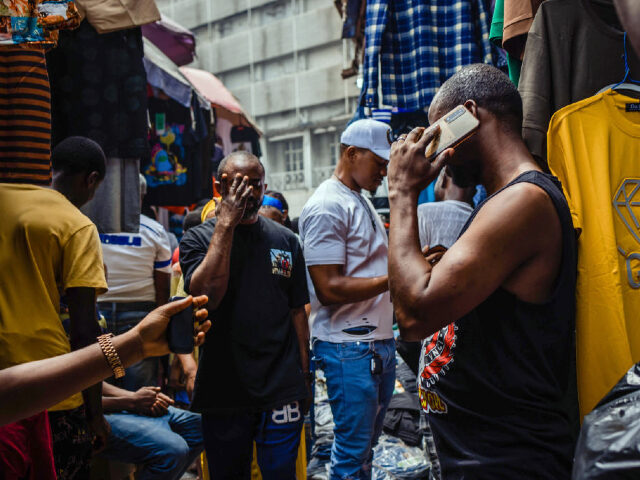The implosion of Silicon Valley Bank (SVB) is sending shockwaves around the world, reaching all the way to Africa, where fragile tech startups are worried that more banks will fail, destroying their supply of much-needed venture capital.
Nigeria’s Vanguard reported on Monday that some tech startups are worried their funds will be trapped in the rubble of SVB, their fears allayed only slightly when financial titan HSBC swooped in to buy the distressed British branch of SVB for a single pound on Monday:
Reports revealed that there were over 140 fintech startups in the country as of 2021.
Speaking on the reality of the situation, Adedeji Olowe, founder and CEO of Lendsqr, a fintech company, was earlier quoted to have said that while some startups may have funds trapped in the bank, the funds have not disappeared.
In the same vein, the co-founder of Carbon, a digital bank, Ngozi Dozie, was also quoted to have said, “VCs make investments and call capital from investors – this money is used to repay SVB loans. So, funds for investment are not in SVB. But funds for VCs to operate, pay salaries and management fees will be in SVB.”
Nigeria’s Nairametrics quoted Ngozi Dozie, the founder of another lending company called Carbon, warning that venture capital would become scarce in Africa for a while.
“SVB operated as a lender, financier, payroll facilitator, investor, and venture debt financier. Overnight all these are no more and not all of these services can be replaced overnight,” Dozie said.
“The psyche of investors and operators alike has changed overnight. When there is uncertainty, people naturally go back into their shells or their countries. That sense of adventure to look at other markets disappeared. The patience to keep investing in a region that has seen little or no exit is severely challenged,” he lamented.
Dozie advised African startups to seek more local investment after the SVB crash, while tacitly conceding that big money for risky tech ventures is presently hard to come by without turning to foreign firms.
“When we rely on foreign investors then we expose ourselves to imported problems,” he said.
Tech Build Africa reported on Monday that SVB “has been increasing its reach in recent years, notably in emerging countries such as Africa.”
“Silicon Valley Bank, for example, established cooperation with Africa’s largest fintech hub, the Africa Fintech Foundry, in 2020 to provide banking services and support to African fintech businesses,” the report noted.
Expanding on Adedeji Olowe’s remarks about African money trapped in SVB, Tech Build Africa explained that SVB “required deposits in the bank as collateral” before making loans available to African startups.
“The bank provided founders with loans against their shares and cashflow loans. Simply put, Silicon Valley Bank was Africa’s favored bank for startups,” the report concluded, observing that African countries like Nigeria, Kenya, and South Africa are trying to build their own “startup ecosystem,” but their efforts are not yet ready to shoulder the burden from SVB’s implosion.
Chipper Cash, an Africa-focused financial firm that had the double misfortune of being funded by SVB and the even more deceased cryptocurrency company FTX, is reportedly considering a sale if it cannot line up new investors to replace its lost benefactors. SVB owned about 2 percent of Clipper Cash, and provided the firm with its banking services. Clipper Cash sought to dispel rumors of an impending sale by releasing a statement on Sunday dismissing the impact of SVB’s collapse as “insignificant.”
Another imperiled African fintech firm is Wave, which provides mobile financial services to Senegal and the Ivory Coast. Wave was already in trouble, having laid off 15 percent of its staff in June.
Melody Brue, an analyst with Moor Insights & Strategy, told the San Francisco Examiner on Friday that SVB’s collapse “has spread like wildfire and spooked investors across the globe.” It stands to reason that nervous investors will be most reluctant to put their money into promising but risky environments like the emerging African tech hotspots.

COMMENTS
Please let us know if you're having issues with commenting.